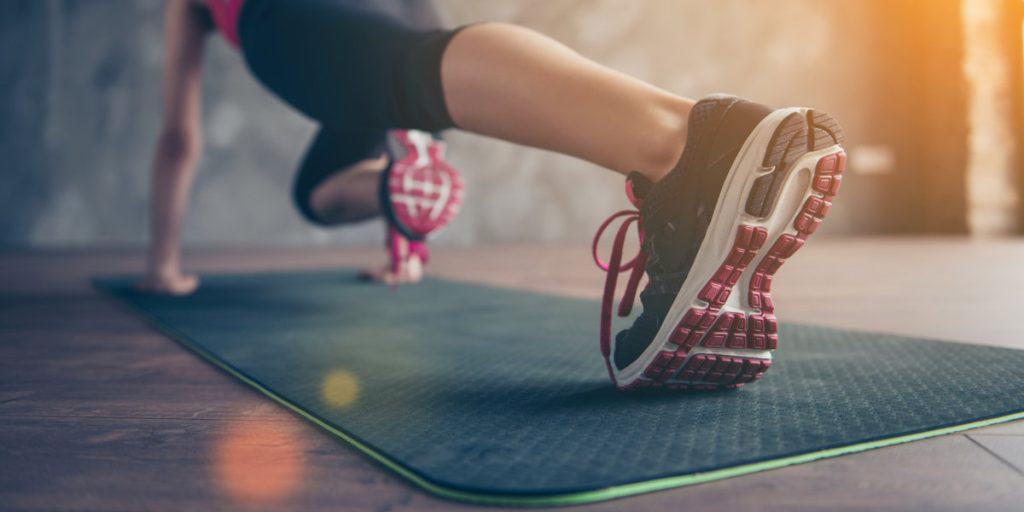Running is a popular form of physical activity; in fact, about 15% of Americans participate in some form of running or jogging. And for good reason!
Running is convenient, requires minimal equipment, and is relatively inexpensive. Whether you’re an experienced runner or just looking to get off the couch more, there’s always more to learn about safe and effective running.
At University Foot & Ankle Institute (UFAI), we see far too many foot and ankle injuries caused by improper running, worn-out shoes, skipping warm-up, and dozens of other small, easy mistakes.

UFAI’s top 9 tips for runners
Whether you’re a beginner runner, an experienced runner looking to improve, or returning to running after some time away, there’s always something to learn! Here are running tips from LA’s premier podiatrists.
1. Set attainable goals
Set small, achievable goals. Expecting too much too soon leads to frustration and quickly giving up.
For example, set a running time you want to work toward then slowly lengthen the run as your stamina improves.
Setting goals is an excellent way to stay motivated and focused. When you achieve running goals, there’s a sense of accomplishment that can propel you forward.
2. Have a training plan!
A training program — whether you find one online, make it yourself, or consult with a running coach — provides a sense of accountability. Consistency is built-in, so running becomes a healthy habit. A daily running program provides the foundation for achieving your exercise goals.
Preparation is crucial for sticking to your plan. To improve your chances of sticking with it, you might:
- Schedule your run at the same time every day.
- Lay out your clothes, running shoes, and headset ahead of time.
- Download your playlist or podcast in case you’re running in an area with poor cell service.
Reducing the number of steps between you and hitting the trail can make it easier to stick to your plan.
3. Choose the right running gear
When choosing a pair of running shoes for the first time, a professional fitting is best. Poorly-fitted running shoes can result in injury to your feet, ankles, and tendons, and even damage to your toenails. A running store or specialty shoe store can make sure you’re wearing the right size and fit of your running shoes.
Our podiatrists can also offer a gait analysis. We measure the way your legs and feet move when you run and can recommend shoes that won’t break your stride.
4. Learn injury prevention techniques
Injury prevention should be a top goal for every runner. But an injury-free run requires more than just making sure you don’t trip over your shoelaces.
Warm up with dynamic stretching, cool down with static stretches, and take walk breaks as needed. Warming up gets your blood flowing and increases your muscle flexibility, lessening your risk of injury. And a post-run cooldown reduces muscle soreness, lets your muscles relax after the strain of running, and slowly brings your heart rate back down to resting.
Mixing strength training into your training plan can also help prevent running injuries. Exercises like squats and calf raises strengthen the muscles you use for running, making them less likely to be strained, pulled, or injured during your runs.
5. Learn proper running form
Proper running technique allows you to run faster and more efficiently. Good running technique places less stress on the body and reduces the risk of injury. It includes the following:
- Look about 10 to 20 feet ahead to prevent falling.
- Keep your hands at waist level with elbows bent at a 90-degree angle.
- Check your posture. Keep your head up, back straight, and shoulders level.
- Swing your arms from the shoulder joint—not from the elbow.
Maintaining good form while you run lessens fatigue and allows for a strong finish.
6. Don’t forget to mix things up!
Running 30 minutes along the same trail every day may be good for your routine, but it can get boring fast. And as we all know, when something feels boring, it makes us not want to do it.
Mixing things up can fight off boredom and keep you motivated! You might mix things up by:
- Cross-training with other activities, such as hiking, biking, swimming, or yoga.
- Including rest days in your training plan. These are essential for both your mental health and to give your body time to recover.
- Finding new paths can generate excitement and relieve boredom.
- High-intensity interval training involves a varying-speed walk-run program. It provides variety and pushes you past your comfort zone.
7. Maintain proper hydration and nutrition
Runners need nutrients and water to keep their bodies in running condition. The best sources of running fuel are:
- Carbohydrates are called “the master fuel.” Carbs are an energy source that can be broken down and metabolized most efficiently. The body will heavily rely on carbs during a run.
- Fats are the main fuel source during a run. Fats aid in the absorption of vitamins and support hormone production.
- Proteins are important because they promote muscle growth and tissue repair. Protein is used by the body for energy, but only after carbohydrate stores have been utilized.
Before a run make sure you’re hydrated by drinking at least six to eight ounces of water. The general rule for fluid consumption during runs is four to six ounces of fluid every 20 minutes—you can carry it with you or make sure it is available along the way.
8. Be safe when running at night
Schedule restrictions, personal preferences, and limited daylight hours often leave dark evenings or morning dusk the only time available for running. Safety is the biggest concern during these hours. The main safety concerns are being hit by a car being assaulted, unseen obstacles, and limited access to help.
If you’re running when it’s dark outside there are important safety precautions to take:
- Wear reflective high-visibility gear.
- Bring your phone and personal identification.
- Run in well-traveled, well-lit areas.
- Run against traffic.
- Keep at least one earbud out so you can hear what’s going on around you.
- Notify at least one person of your running route.

9. Join a running club
A running club is a great way to socialize, connect with other runners, find a running buddy, and achieve your fitness goals. A running club holds you accountable and can be a great source of inspiration. Running groups include runners of different ages and fitness levels.
If you want to run longer distances and train for your first marathon or half-marathon a running club is the way to go. Running long distances changes the body’s needs and alters your fitness program compared to shorter runs. A club can provide vital marathon training advice and ensure you cross the finish.
Running isn’t one-size-fits-all. What works for one runner may not work for another. It’s important to adapt your training based on how your body responds.
University Foot and Ankle Institute is an internationally recognized leader in foot and ankle care, research, and development of state-of-the-art treatments and technologies. UFAI can guide your running journey.
Why choose University Foot and Ankle Institute to prepare for your next run?
Whether you need to find proper footwear, treat an injury, or get advice on proper foot care for your next marathon, we’re here to help. Our podiatrists offer the most advanced podiatry care and the highest success rates in the nation. We are nationally recognized foot and ankle specialists and leaders in researching, diagnosing, and treating all foot and ankle conditions and common injuries.
For a consultation please call (877) 736-6001 or make an appointment online now.
University Foot and Ankle Institute is conveniently located throughout Southern California and the Los Angeles area. Our foot doctors are available at locations in or near Santa Monica, Beverly Hills, West Los Angeles, Manhattan Beach, Northridge, Downtown Los Angeles, Westlake Village, Granada Hills, and Valencia.
- Flip-flops Causing You Pain? Protect Your Feet This Summer! - April 23, 2024
- 9 Running Tips from Sports Medicine Experts - November 8, 2023
- Common Foot Problems In Aging Feet: What To Watch Out For - October 16, 2023
Leave a Reply